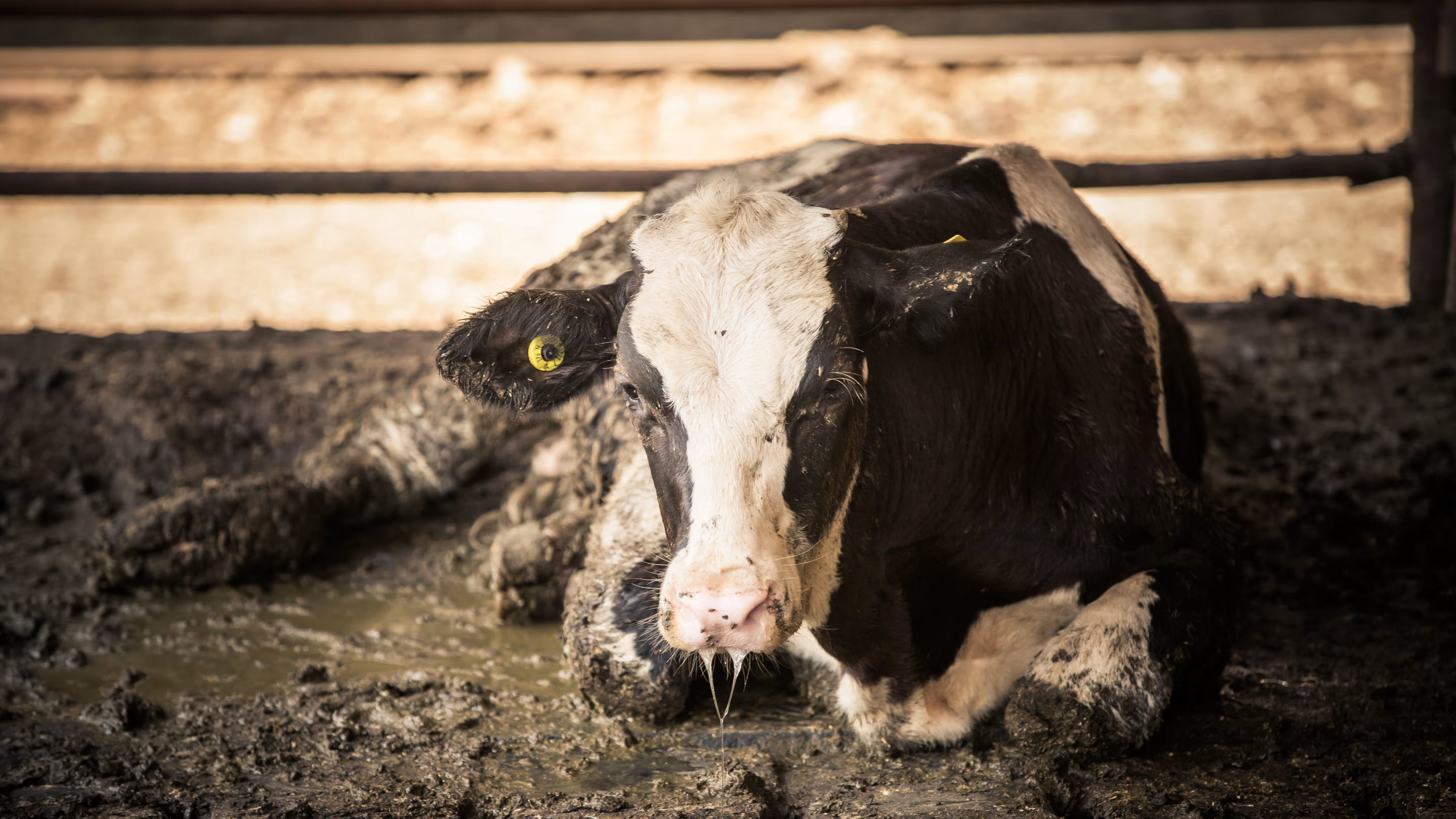




Animal advocates have a long road ahead—and we need your help.

Looking for a worthy cause that needs your support? You’ve come to the right place.
It’s important to celebrate wins in our long battle against the cruelty and destruction of the factory farming industry: every movement thrives on hope.
But it’s also crucial for us to keep our focus and remind ourselves of all the work that needs to be done. Factory farms still have too much control and are too normalized in our lives. Here are six facts to galvanize you to fight back against factory farms.
1. Despite everything, factory farming is growing
Factory farming is terrible for animals, people, and the planet we all share. Despite this, it’s growing at a frightening rate: in the US, we now raise twice as many animals for food as we did in the late 1980s, and the majority of those animals now come from factory farms.
2. And so is the US population’s meat consumption
According to a recent survey that tracked data from 2005 to 2020, fewer households are eating meat. But the households that do eat meat are eating a lot more meat. The average American now eats on average 224 pounds of red meat and poultry, 280 eggs, 20.5 pounds of fish, and 667 pounds of dairy every year. With that kind of demand, it’s no wonder factory farms are feeling confident—and it’s all the more important to show them animal welfare advocates won’t accept their cruelty.
3. But animals are dying for no reason
Factory farms argue that people deserve easy access to cheap meat. This is a dangerous proposition in the first place, but it also doesn’t account for the millions of animals dying every year in the factory farming industry—without even making it to a plate. 597 million chickens go missing from America’s food supply each year, dying during transport, or in hatcheries or farms before they make it to a slaughterhouse. The animals who do make it to our plates are too often wasted, like the eight million turkeys thrown in the garbage every Thanksgiving.
4.Governments break promises
Sometimes we get to cheer about a new promise, like in 2021 when the EU announced its plan to ban cages for farm animals by 2023. But it failed to do so, largely because of the pressure applied by factory farming lobby groups who fought to put the legislation on hold. That makes it important for people to hold their governments accountable: like the End the Cage Age Citizens’ Committee, who are suing the EU Commission as a result of this broken promise.
5. Corporations break animal welfare commitments
More and more corporations are responding to demands from animal welfare activists and promising to better treat the animals that pass through their systems—which is wonderful. But tragically, too many corporations agree to these pledges to save their brand, without really committing to the change required. The Founders Pledge estimated only a 60% probability that companies will follow through with cage-free commitments, and corporations regularly go back on their promises—like Target, which recently broke its pledge to go cage- and crate-free. It makes it all the more crucial for animal welfare activists and advocates like us to hold corporations to account.
6. The climate crisis is worsening—and factory farms are to blame
The defining problem of our time, the climate crisis, is only becoming more pressing and urgent: 2024 was our planet’s hottest year on record. Yet we know that factory farms are one of the largest contributors to climate crisis, responsible for at least 11% of global emissions. Factory farms know it, too: at the COP29 climate summit in 2024, hundreds of factory farm lobbyists arrived to put pressure on governments and activists who wanted to encourage a shift to climate-friendly farming. We need to send factory farms a clear message that we won’t let them destroy our planet.
2025 will be a defining year for animal rights, particularly as many corporate commitments come due this year. Ready to make your voice heard? Volunteer with us and speak for the animals.








